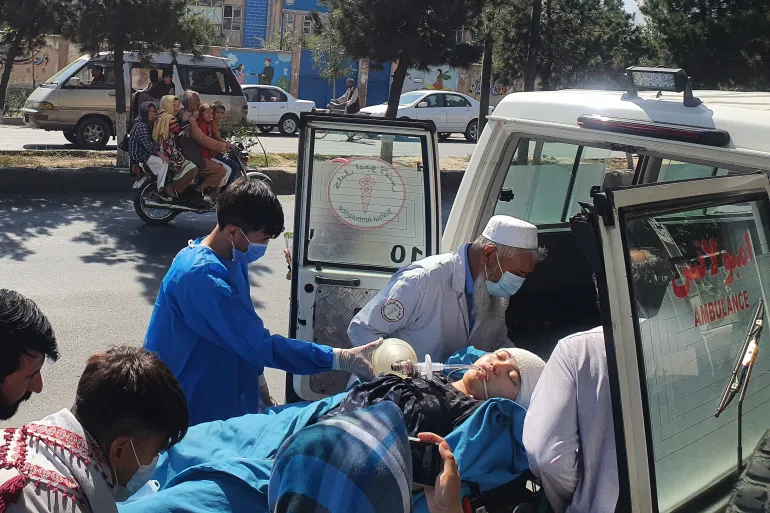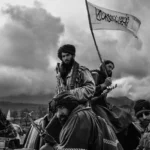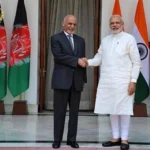Yesterday was an unfortunate day for Afghans, particularly the Shia Hazara community. A series of blasts ripped across a Western Kabul neighborhood Dasht-e-Barchi. The neighborhood is home to mainly the Shia Muslim community. The attack targeted a secondary school and was carried out using a car bomb and two improvised explosives. The inhumane attack targeted school-going girls during their pack-up time. This unfortunate event has led to more than fifty deaths.
This incident will surely go down as one of the most devastating terrorist attacks in Afghanistan. The Kabul government, responsible for the security of the area immediately blamed the Taliban. However, the Taliban leadership has not only denied but also strongly condemned the attack.
Also Read: The US Withdrawal from Afghanistan
The Spoiler of ISIS
The Daesh terrorist organization in Afghanistan has been carrying out lethal attacks for the past few years. The neighboring states along with Afghanistan are also a victim of these attacks. In 2018, the IS suicide bombers struck tuition centers in the area killing more than 70 people. Similarly, just a year ago the same Dasht-e-Barchi locality became a victim of another attack when a hospital was targeted. As a result, the attack brutally killed 24 women and children. On November 2nd, 2020, three gunmen raided the Kabul University campus in Afghanistan, killing 22 people and wounding 50 others. The ISKP accepted the responsibility of this claim.
Moreover, ISIS has particularly carried out attacks against minority groups, especially the Shia Hazaras. In October 2017, 39 worshippers were killed in Kabul’s Imam Zaman Mosque. Later on, in August 2018, 48 people including 34 students were killed in an attack on a tuition centre. On Sept 5th, 2018, the twin bomb blasts occurred at a wrestling club in Kabul that killed 20 people. The ISKP accepted responsibility for all these attacks as well.
Why ISIS Targeted Children
It is depressing but important to recognize that extremists know an atrocity is more likely to attract the attention of the world if it targets the young. The attacks on Army Public School in Peshawar on December 16th, 2014, and the attack on Bacha Khan University in Charsadda on January 20th, 2016, resulted in 141 and 22 deaths respectively. These attacks followed a similar heinous pattern. These horrific attacks received more media attention than any other terrorist atrocity in the country.
Moreover, such events are a direct attack on the nation instead of any military or political institution. It serves a more ideological and nationalist purpose when children, who are the future of a nation are targeted.
The group and its allies have signified its genocidal tendencies (committed to exterminating a nation), by undertaking similar attacks in Iraq, Syria, and Nigeria.
Demonizing Taliban
Anytime an attack occurs in Afghanistan, the Kabul regime is quick to blame the Taliban. Not just that, any other group would accept responsibility for the strikes as well.
What is even more ironic is that the USA has called out IS on many occasions for the attacks it has carried out. While their counterparts in Kabul rely on a non-empirical blame game that adds fuel to fire.
In the aftermath of last year’s attack in the same neighborhood that targeted a hospital, the US special envoy, Zalmay Khalilzad categorically blamed ISIS for the attack. However, the Kabul regime in contrast remained adamant to hide their failures and even rejected the US statements. It remained blunt and continued to blame the Taliban.
It is discernible that this blame game has underpinnings for a power struggle at the behest of Kabul. Such attacks on soft targets depict the volatility of the situation in Afghanistan. The attacks seemed to have increased in their frequency after the Doha Agreement, signed last year. The US and the Taliban have conceded that these attacks are aimed at derailing the Afghan Peace Process. Who benefits from these spoilers if not the Taliban?
Kabul’s Downplaying of Its Failures
Apart from the perpetrators of such attacks, those responsible for providing security also stand questionable. What security measures were adopted, was it a failure of intelligence, or was it a blatant error, not once but many times? These are the questions that cross one’s mind when focusing on empirical facts.
Ever since the former ‘spymaster’ Amarullah Saleh was placed in In-charge of Kabul’s security in the last few years, later on, became the Vice President of Afghanistan – The city has witnessed the deadliest attacks. What is more appalling is the cold response received after such attacks. Saleh directed no retaliation or thorough investigation; he simply just inculpated the Taliban or Pakistan for his failures. Were these failures deliberate, remains a solid question. While Mr. Saleh had directly called out Pakistan for destabilizing his country, his team has failed to empirically identify and avoid attacks in the country’s capital.
Moreover, the international observers have also blamed the Afghan forces for civilian casualties. In 2019, Brown University carried out the ‘Costs of War’ project which depicted a contradictory picture to what the political juntas at Kabul have been claiming. The Afghan Air Force is now “harming more Afghan civilians than at any time in its history”, the group’s research paper stated explicitly.
It also coerces one to think that why most of the IS attacks have been in areas held by Kabul and not those under the Taliban. Keeping in mind, the Kabul government controls the urban, not the rural areas which are easier to secure.
Depreciating Pakistan’s Role in the Peace Process
Pakistan has played a recognizable role in the Peace Process. It has helped in culminating the historical accord between the Taliban and the US. The dialogue also included the actors who have shown their apprehensions towards Pakistan in the past. Pakistan’s executives’ efforts have eased down tensions by carrying out interactions with their Afghan counterparts.
Pakistan has pursued across-the-board diplomacy to clear the way for an Intra-Afghan dialogue. Pakistan’s policymakers-initiated dialogue with all other Afghan groups, be it Pashtun or non-Pashtun. It seems that the Kabul regime and Saleh-Ghani duo aim at singling out Pakistan from the Peace Process.
This is significant as it depicts a growing understanding of the political rationale that affects the dynamics of the respective state. The Policy shifts have become evident among the Afghan and Pakistan power holders. The other stakeholders have also professed to this factor, particularly the United States.
The Afghan Corruption Resulting in Lapse
Previously, just two days before the attack, a joint US-European meeting took place in Berlin. Important takeaways from the meeting included statements regarding support to those groups that aim to keep the republic intact. This shows the US weighing down with Kabul as the latter reiterates itself to keep Afghanistan united.
However, the same communique lambasted the Afghan regime for its corruption that has primarily resulted in the failures of the joint operations. The joint US-Euro statement even went forward to remark that as long as such corruption is not curtailed, the international support might not be garnered.
This again raises questions concerning the Afghan regime, which despite functioning under US auspices has remained a subject to criticism by observers.
In the Context of Regional Policymaking
The US and the NATO forces can use these attacks, as a pretext to install, a certain “security arrangement” within Afghanistan, even after the so-called withdrawal. This might include keeping a minimal, unrecorded presence in Afghanistan even as the regular US troops leave. This might also create means to establishing a few military installations. The US and the NATO forces can use these attacks, as a pretext to pressurize Pakistan for further aggressive posture against the Taliban. They can also use this to pressurize Pakistan into being in Favour of the war on terror.
If progressed without strong resistance from any of the stakeholders, these attacks have the potential to become a tipping point, where China could feel threatened due to the collapse of the modernized regime and the re-rise of Taliban at the border of China.
Conclusion
In light of recent events and policy statements by various groups, it is evident that the Kabul regime is playing irresponsibly and in a non-democratic manner. Even when the Taliban have repeatedly asked for a neutral and transparent investigation into these attacks.
All actors must rationalize events based on empiricism rather than visuals or narratives. It is on the beam that the Taliban have strived for diplomacy for their objectives. However, their public diplomacy is still at the backhand which denies them the benefit of the doubt in case of an attack, despite stern denials by the group. Their media management is hawkish, which backfires as it results in unintended consequences.
The Taliban have to depict a stature of a mature political group that aims at the inclusion of all Afghans for a comprehensive political future. By joining hands with other stakeholders, Northern Alliance and Afghan National Forces, in particular, common threat – ISIS can be neutralized.
Lastly, the US and other regional powers have to call out the spoilers who benefit from such attacks. If ISKP is responsible, then factors that are emboldening their inhumane tendencies must be called out. The nexus of elements supportive towards ISIS within the NDS must be exposed. Besides, actors in the Afghan government that are perpetuating IS along with those actors whose blunders have resulted in security failures must be dealt with in both domestic as well as in international settings.
Your go-to editorial hub for policy perspectives and informed analysis on pressing regional and global issues.





Add a Comment